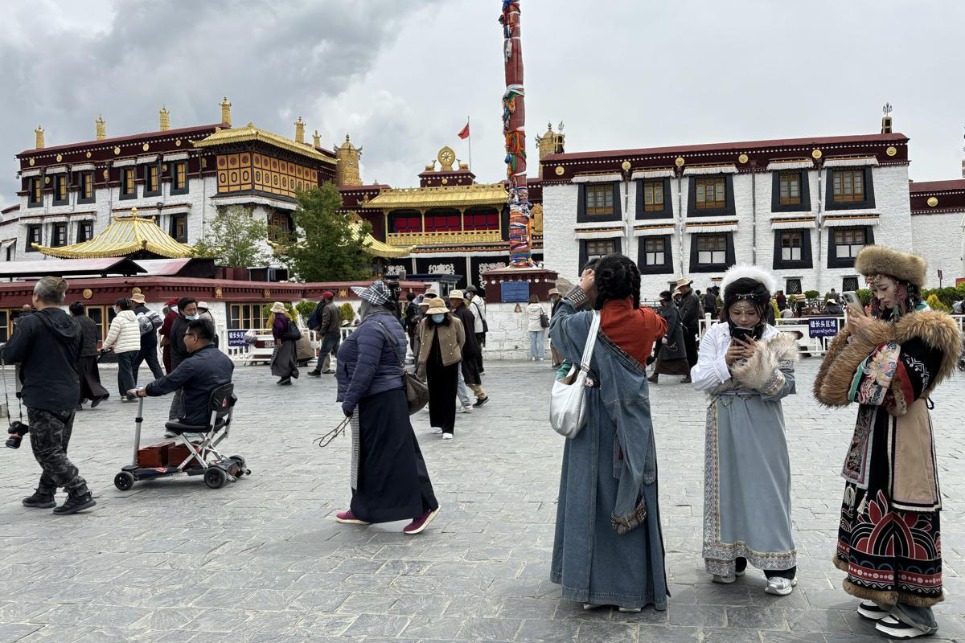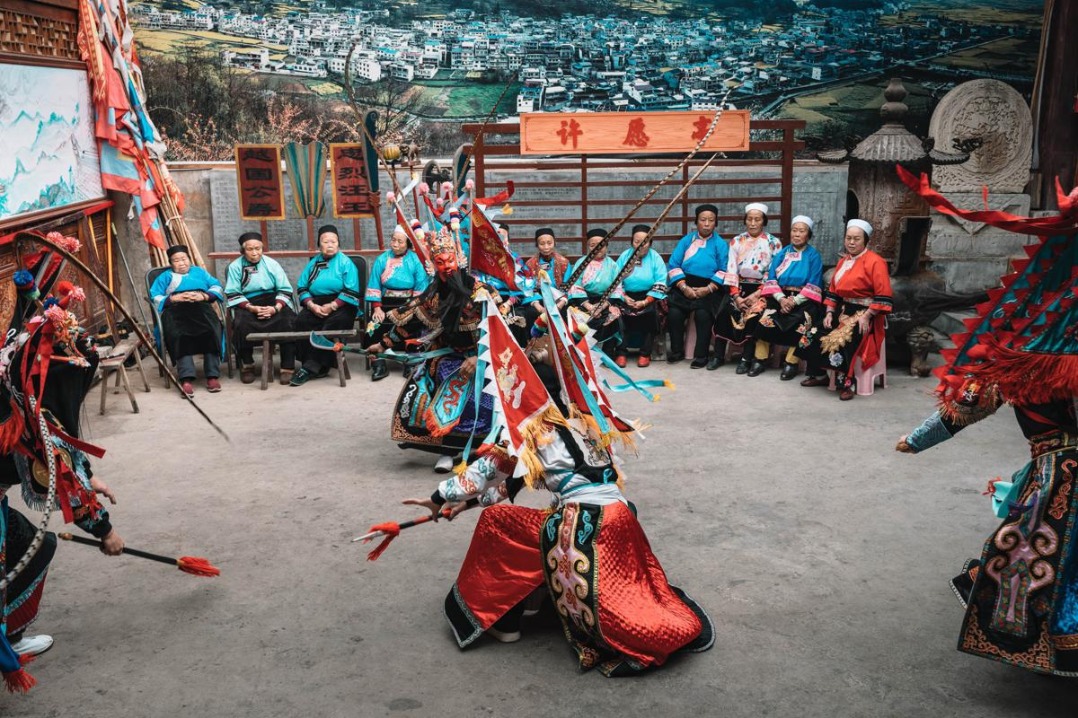Floating classes carry Party messages to fishing villages

NANNING - At least once a month they gather on decks or in the red-roofed house in the center of the water, sitting on stools to hear or study the latest theories and policies of the Communist Party of China.
For the 6,000 residents of Tianshengqiao township of Longlin county in the Guangxi Zhuang autonomous region, the "lecture on the water" is the most popular and effective channel to understand Party policies. Speakers are mainly village and township Party chiefs. County technology advisers are also invited to teach aquaculture.
Liu Jian, Party chief of Tianshengqiao, has been a frequent speaker since he took office in this small, remote mountain town in October 2016. He says most of the population belongs to ethnic minorities, including Zhuang, Miao and Gelao.
The villagers used to grow rice. But after the construction of a hydropower plant in the 1990s, they farmed fish and began living off the reservoir, which borders Yunnan and Guizhou provinces.
"Most villagers spend all day on the water, busy working. They have little time or opportunity to learn about the world outside," Liu said.
Seen from the mountains, the floating fish pens, large and small, checker the green lake like a chessboard.
The red-roofed "lecture room", at the center of the reservoir, is particularly eye-catching. Local people call it the "New Era Institute of Peasants", which is believed to be a nod to the Peasant Movement Training Institute of 90 years ago.
In the 1920s, revolutionary pioneers of the CPC, including Deng Xiaoping, set up peasant movement institutes in remote mountain areas in Guangxi. They preached revolutionary theory, conducted military training and organized armed struggles, which laid the foundation for later uprisings and revolutionary bases.
In recent decades, local Party officials called for gatherings of villagers in the meeting room of a government building in the town center to hear reports. Because of the long distances and worries about their work, few people were willing to attend.
"The attendance was low and people were not happy," Liu said.
In 2014, the township's CPC committee decided to move the meetings onto the water.
"We used to sit on the podium, waiting for an audience. Now we stand on a boat and get close to the villagers, telling them about events and policies from Beijing," Liu said.
Villagers travel by boat to the meetings. Lectures usually last 40 to 50 minutes and attract more than 20 boats each. Audiences can reach 100.
Some people wear Party emblems and some come in colorful ethnic costumes. The elderly bring their grandchildren, and women weave while listening. Some people take notes.
Speakers use local dialects and the Zhuang language. Though outsiders do not understand, the locals appreciate it.
Speeches with difficult concepts are "translated" into examples and stories based on simple daily life.
Liu in recent lectures explained Xi Jinping's speech at the 19th CPC National Congress in October, stressing content about "pursuing a rural vitalization strategy" and "safeguarding the property rights and interests of rural people".
A meeting last month focused on medical insurance. Some villagers thought it was unnecessary, but after half an hour of discussion, they realized the benefits.
Liu convinced them that insurance would save money on treatment: "Without insurance, you will pay more if you go to the hospital. Moreover, the local government has also offered to reimburse fish farmers' medical bills. It would not cost much."
On the water, speakers' voices are louder and gestures are more frequent. Worries about losing the audience are gone. Laughter often echoes from the boats.
It is also a popular class on fish farming. In the early years of the reservoir, people did not understand how to farm fish. Pursuit of high production led to fish diseases, severe pollution and huge losses.
Shi Zhongyu, a local aquaculture expert, lectures three or four times a year on the water. "In the past, the fish farmers could hardly make a living, because they lacked knowledge and training," he says.
Every winter, he tells them to reduce the density of their fishing nets, and not to feed too much so as to maintain nutrition levels. He explains while demonstrating on the water how to feed properly - an impossible task previously.
In 2012, only 15 households were fish farmers, but now they number 200 - almost half the town's population.
Aquaculture has become a pillar industry in the county. In 2016, two of its five poverty-stricken villages were lifted out of poverty.
Longlin county has 31 villages setting up "lecture rooms". Some are known for speakers using folk songs to explain national policies so the less-educated can understand.
"We plan to expand the speaking team by inviting ethnic villagers or experienced fish farmers," Liu said. "They will make the lectures on the water more attractive."
Xinhua
- Lhasa's GDP grows 7.1 percent in first three quarters of 2025
- Co-hosting games boosts GBA integration
- Scholars call for ecological protection of Tunbu culture
- Cross-Strait exhibition highlights Chinese crested tern conservation
- China halts port fees on US vessels for one year
- China moves to cut teachers' administrative workload






































